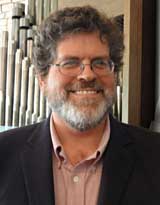O God of Earth and Altar (Prayer for the Nation) – 1906 – The Episcopal Hymnal #591

From all that terror teaches,
From lies of tongue and pen,
From all the easy speeches
That comfort cruel men….
Deliver us, good Lord.
Strong words, indeed! Could any hymn be more suited to the current political climate, here or in Britain? G.K. Chesterton‘s hymn has been rattling around in my brain in recent days. In fact, it has never been far from mind since I first encountered it.
When I was thirteen, my family spent a sabbatical year at Oxford. I entered another world, attending an all-boys school, Magdalen College School. Suddenly, hymns and church became a much bigger part of my life. (“Formation” as we often say at Seminary of the Southwest).
Chapel was first thing in the morning before class, and attendance was mandatory. Several hundred boys ranged from young soprano choristers in the Magdalen College Choir to high school students, so all ranges were represented. A small pipe organ was played by a student, or occasionally by the faculty.
Mr. Pugh, one of the Masters, was our secular leader of Chapel. (We also had a chaplain, but he wasn’t nearly as interesting as Mr. Pugh). He was a superb encourager of vigorous singing, an intense, bespectacled Welshman with wild red hair. “Sir is a Welsh Nationalist!” was the whispered scuttlebutt. His enthusiasm, intelligence and heart did a lot of good around the School. He certainly inspired me, in chapel and out.
We would often rehearse hymns before chapel, which was a good way to learn new hymns, and to improve the old ones. Indeed, during these teaching sessions, Mr. Pugh would often interrupt us, mid-strophe. “What are you singing about, lads!? Put some heart into it! Listen how that line rises – is that all you can do?” And we responded, putting shoulders to the task. There was bemusement on our part, to be sure, but the singing was compelling, exciting!
Out of the background of fine, respectable hymns in Chapel, some leapt forward and galvanized my 13-year-old imagination. None more than Chesterton’s “O God of Earth and Altar.” Glorious strophes of cheerful praise and admirable divine attributes are entirely absent. We never sang this one back home at First Presbyterian! Mr. Pugh gave it the full treatment.
What an amazing, extraordinary text. No punches pulled, this was a body blow to society’s conscience. “Can you really say this out loud in church?” I wondered.
With the voice of a modern prophet, Chesterton goes right to the heart of the problem.
The walls of gold entomb us,
The swords of scorn divide,
We have gone seriously astray! Repent! Yet, it was not simply the customary personal piety on offer. Rather, an entire society had just been indicted. Ripped from the headlines of that day (or any day), from the very first line, it is clear that there is an urgent problem.
O God of earth and altar,
Bow down and hear our cry,
Our earthly rulers falter,
Our people drift and die;
We are called not only to repent to the Creator, but clearly, change this world as well.
And here is this remarkable plea:
Take not thy thunder from us,
But take away our pride.
We are not utterly worthless beings for all our wanderings, our “thunder” is a worthy attribute, worth keeping.
Chesterton’s love of paradox is in play in the final verse, a gripping vision of what must be:
Tie in a living tether
the prince and priest and thrall,
bind all our lives together,
smite us and save us all;
in ire and exultation
aflame with faith, and free,
lift up a living nation,
a single sword to thee.
How wonderful! How terrifying! How completely overdone! All true. (Has there ever been a hymn ending more perfectly suited to an adolescent male?)
In 2015, the hymn was sung as the Processional hymn for the re-interment of King Richard lll, an apt selection as it turns out. The King, slain at the Battle of Bosworth, remains an enigmatic figure.
Its usage here works on several levels. At any funeral, we have the opportunity to reflect on that which is most important in life. Have we wasted our time listening to, or – gulp – making those “easy speeches that comfort cruel men?” Perhaps the deceased was the one making those speeches.
In this case, “O God of Earth and Altar” functions well within the debate over King Richard’s controversial legacy.
1) Was he the brooding, scheming murderer of two young princes in the Tower of London, in the Shakespearean tradition?
“Now is the winter of our discontent…
I am determined to prove a villain,
And hate the idle pleasures of these days.”
Yes, Richard was just the sort our hymn warns us about! Or –
2) Do we hew to the views long held by the Richard lll Society? In this understanding, the king was a much nobler sort, maligned by the winners of that particular war, who then as winners do, wrote the history. Perhaps he was truly a victim of “easy speeches,” including one monologue written for him by the Bard.
Take your pick! In either case, adherents of both views were no doubt nodding their heads, singing Chesterton’s plea as the casket passed by:
From sale and profanation
Of honour and the sword,
From sleep and from damnation,
Deliver us, good Lord.
 Kevin McClure is Director of Music and Lecturer at Seminary of the Southwest, and Director of Worship and Arts at Shepherd of the hills Lutheran Church in Austin. He is married to the Founder and Director of the Austin Girls’ Choir, Sara Burden-McClure.
Kevin McClure is Director of Music and Lecturer at Seminary of the Southwest, and Director of Worship and Arts at Shepherd of the hills Lutheran Church in Austin. He is married to the Founder and Director of the Austin Girls’ Choir, Sara Burden-McClure.

